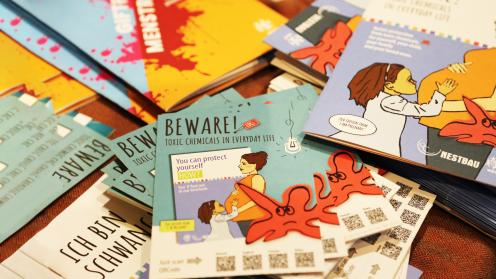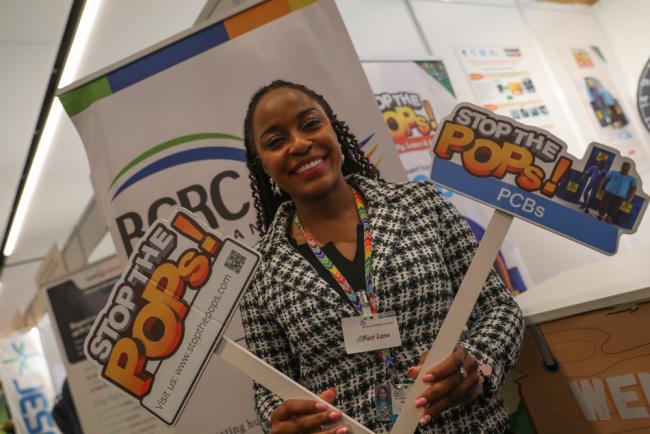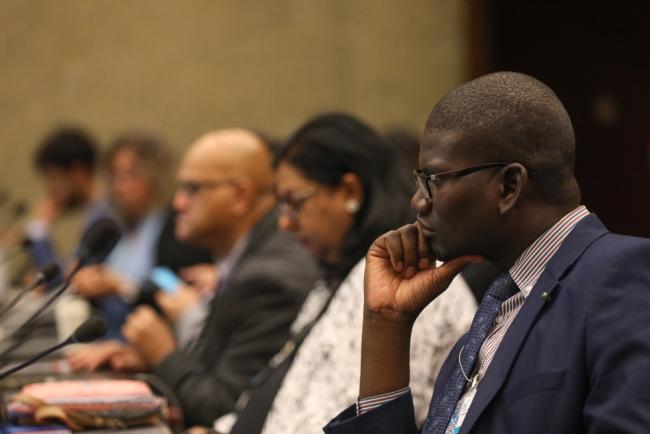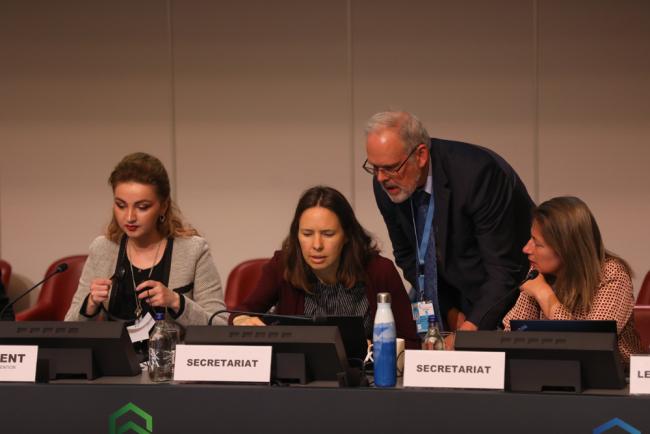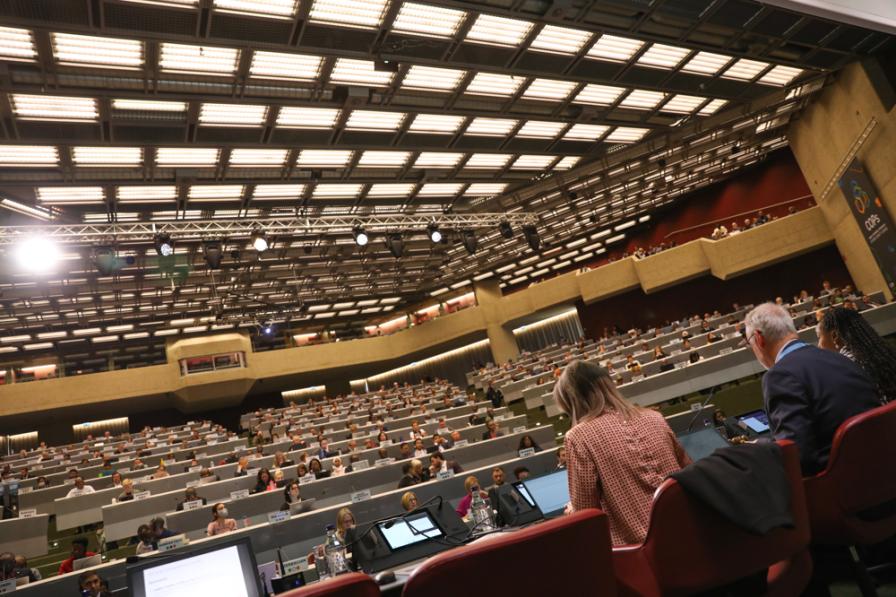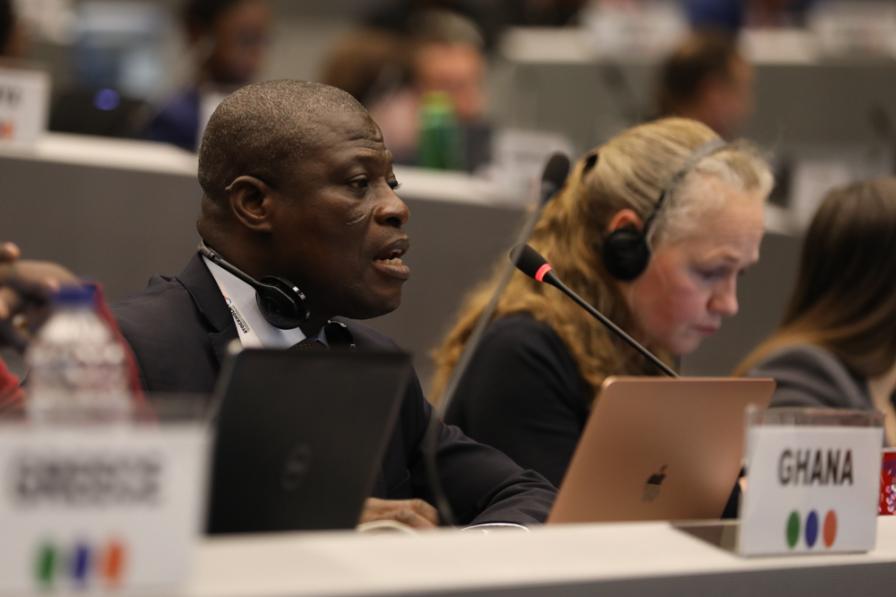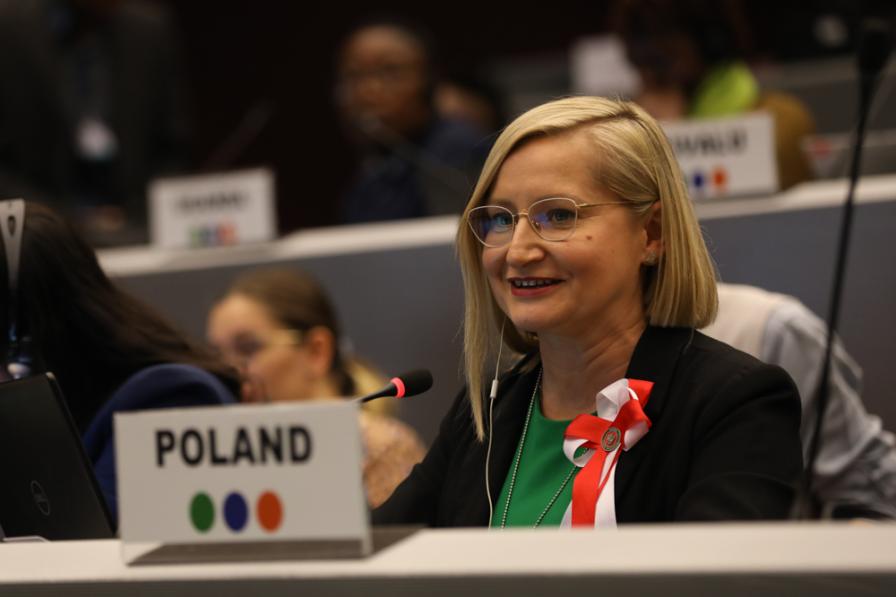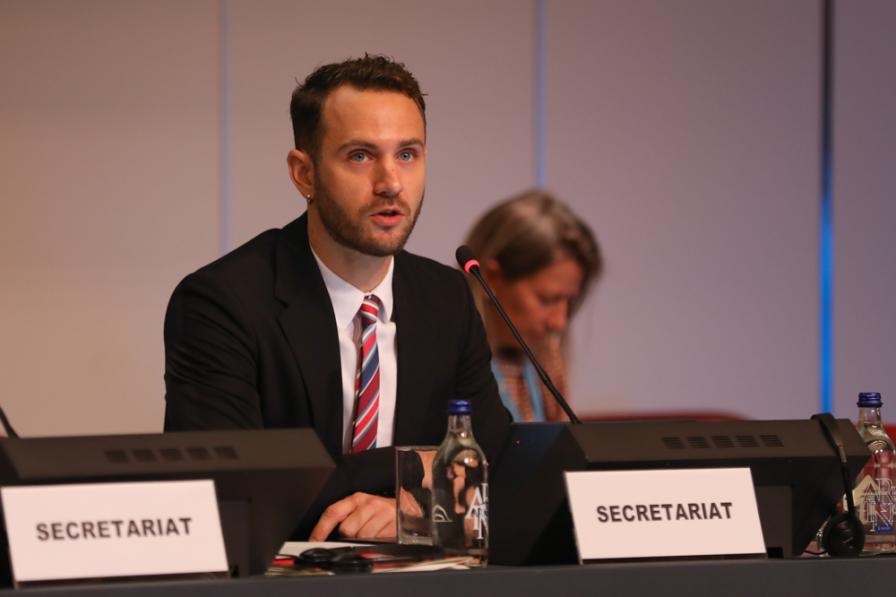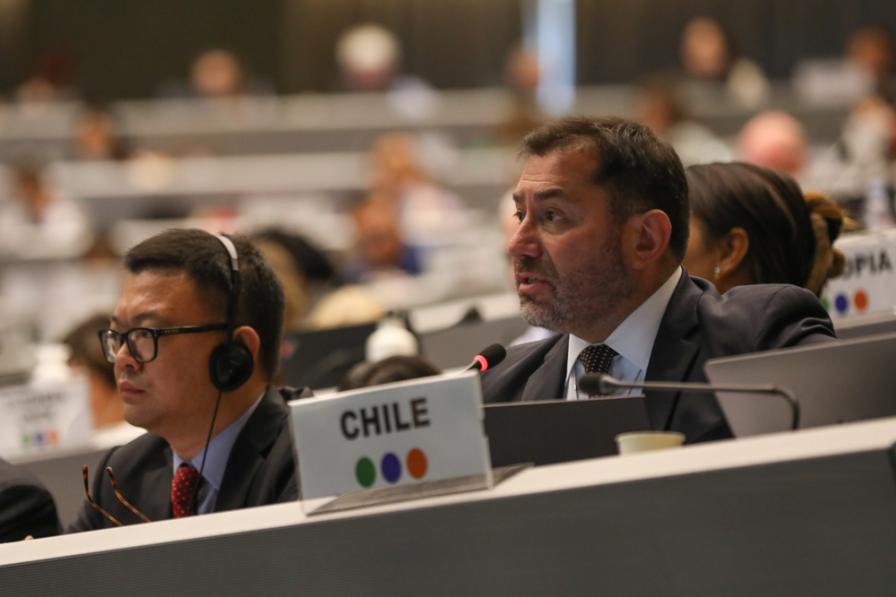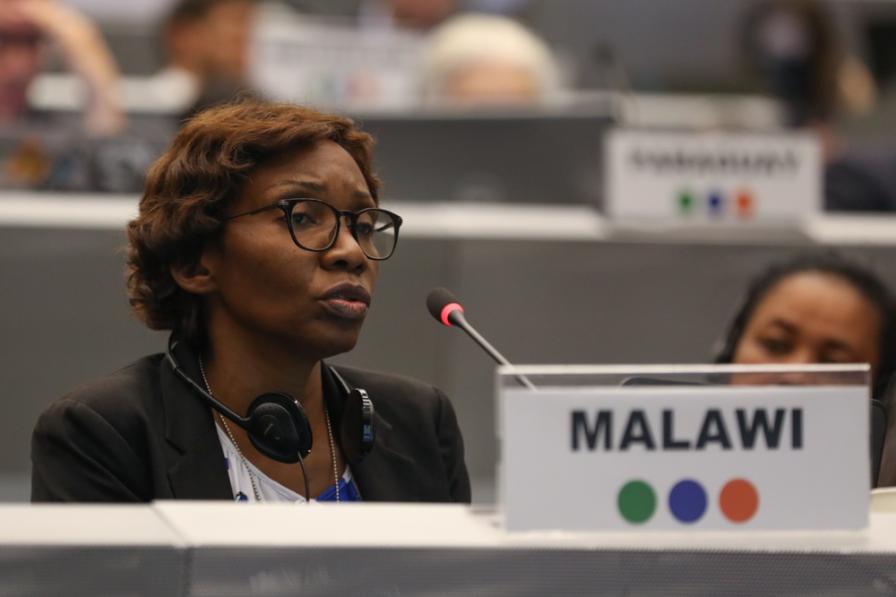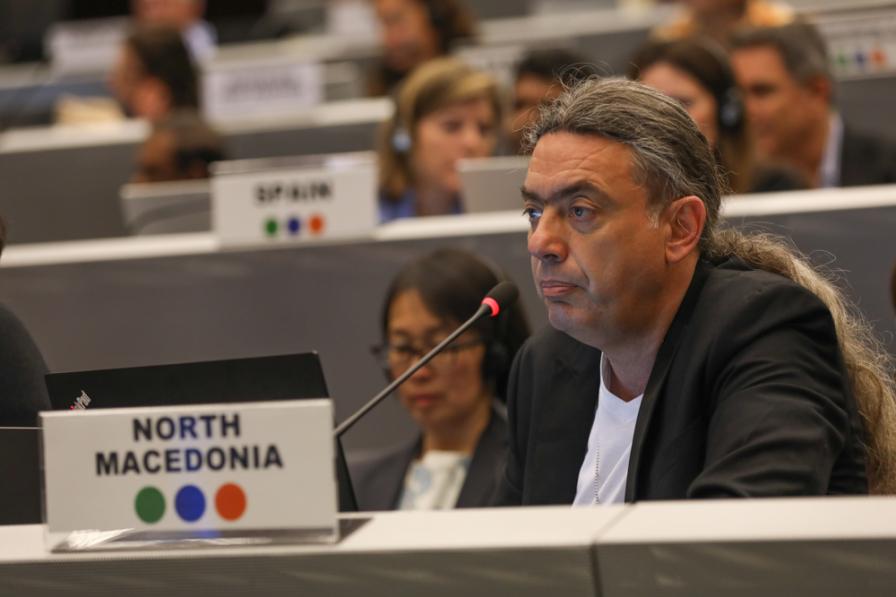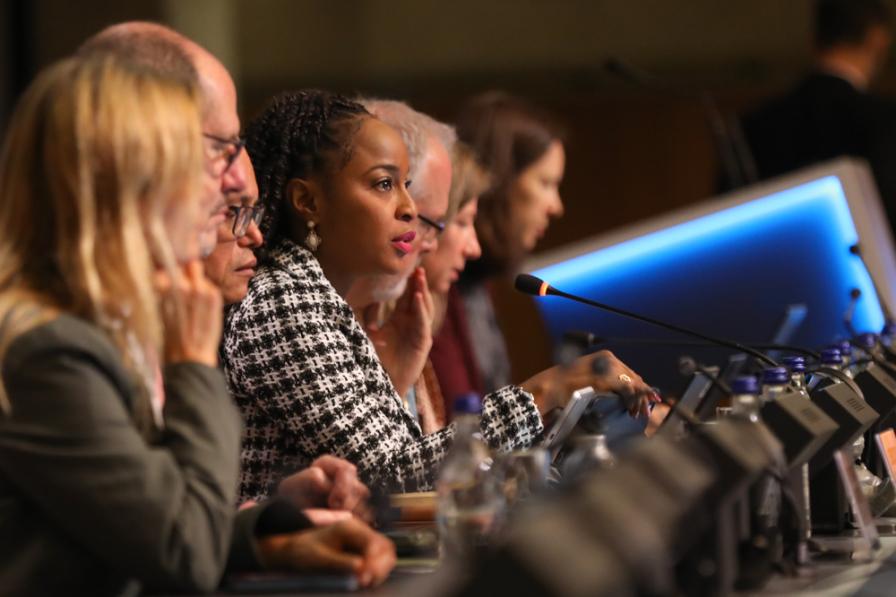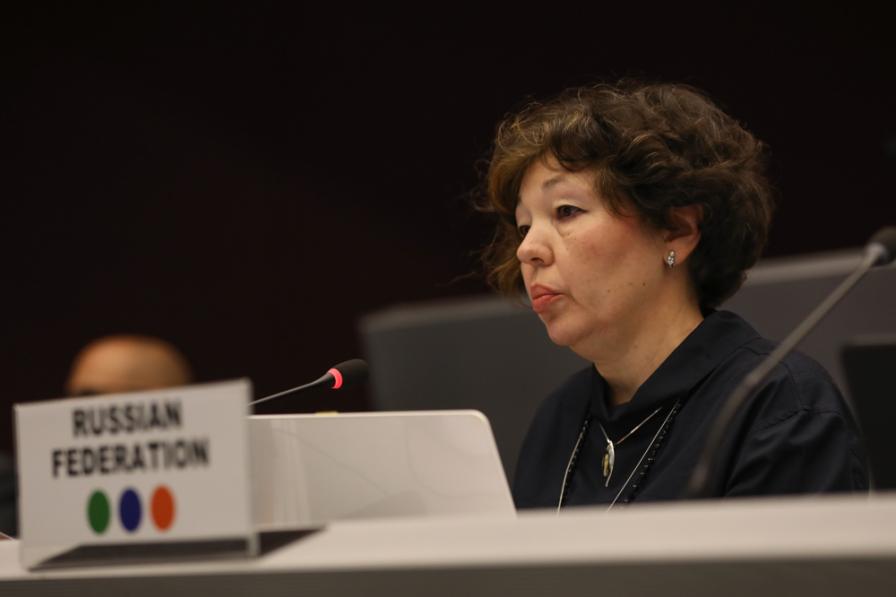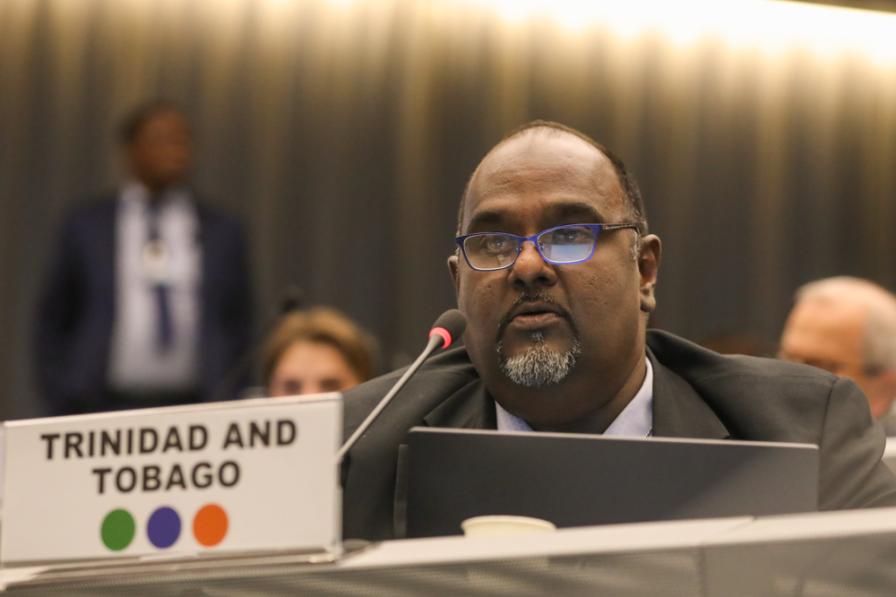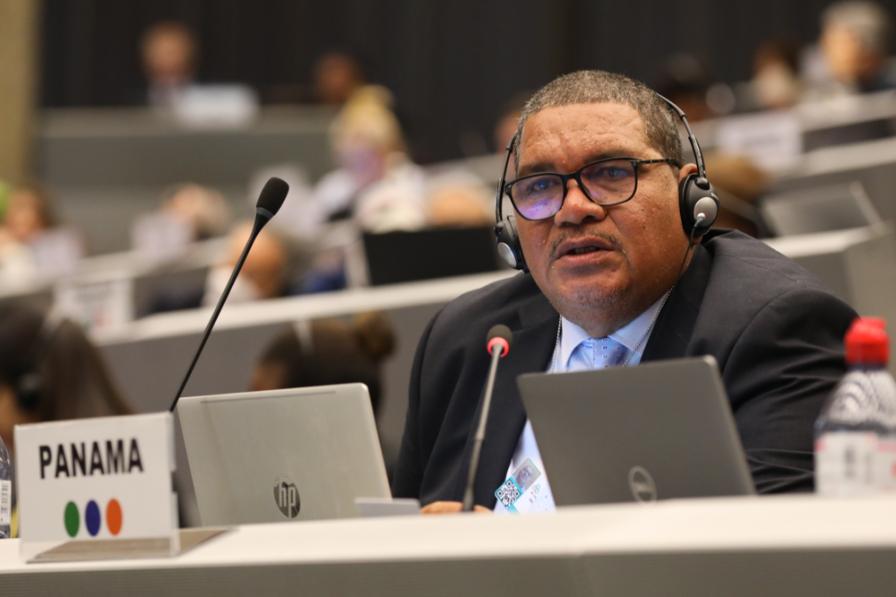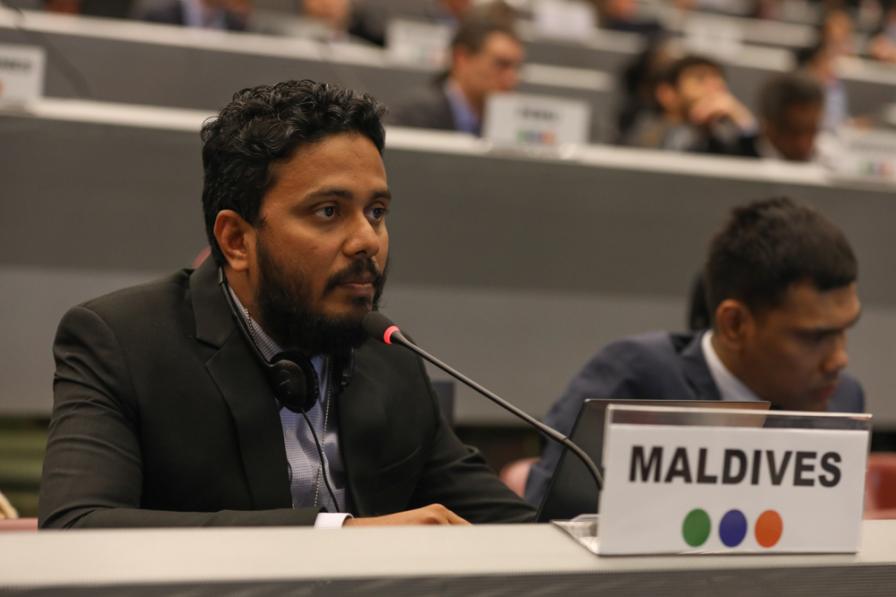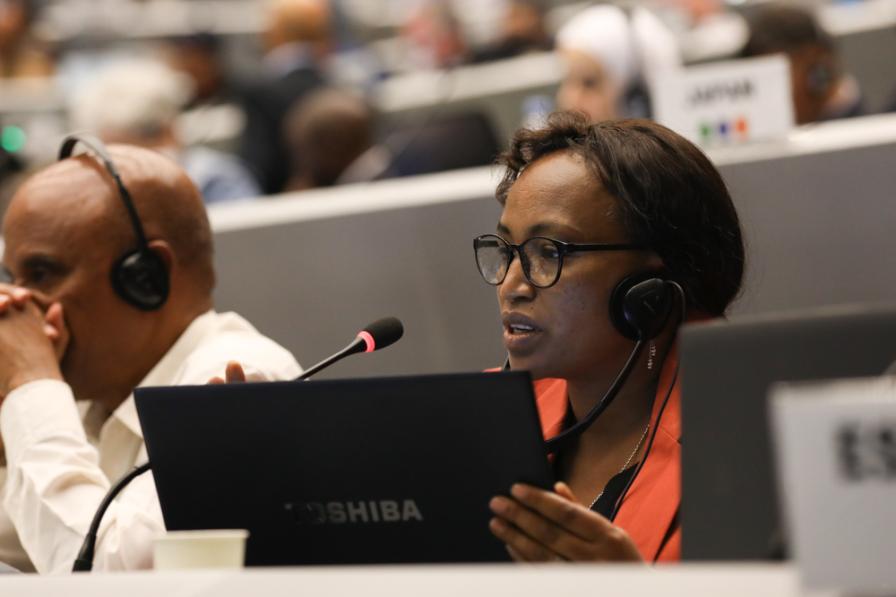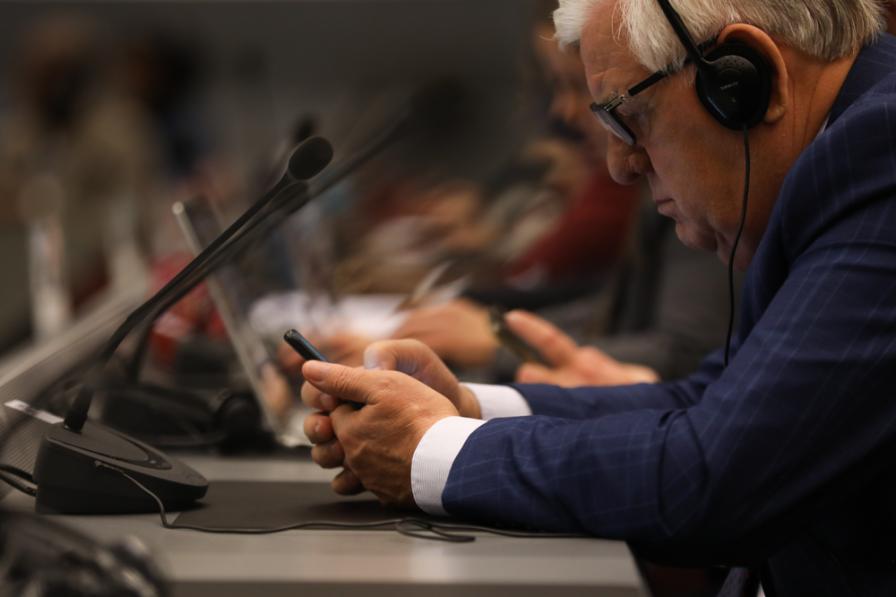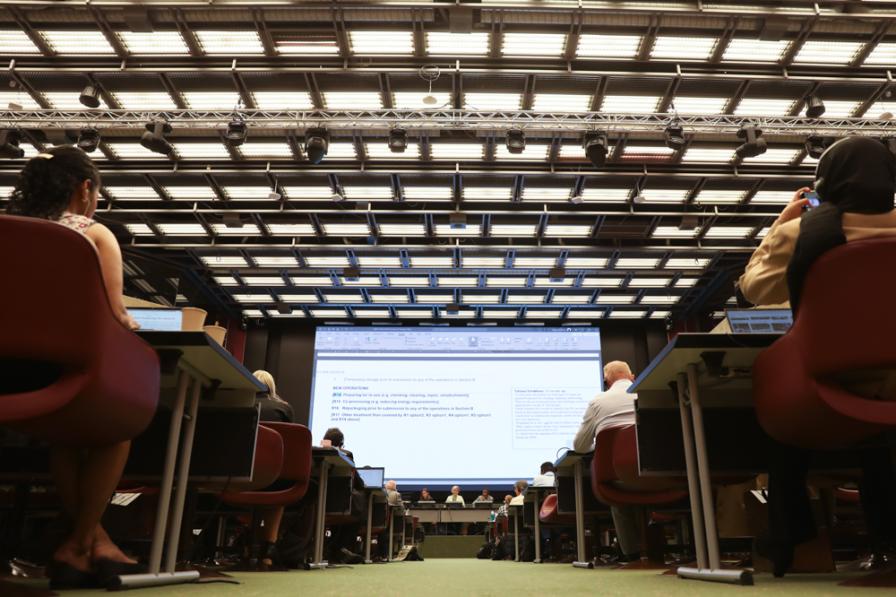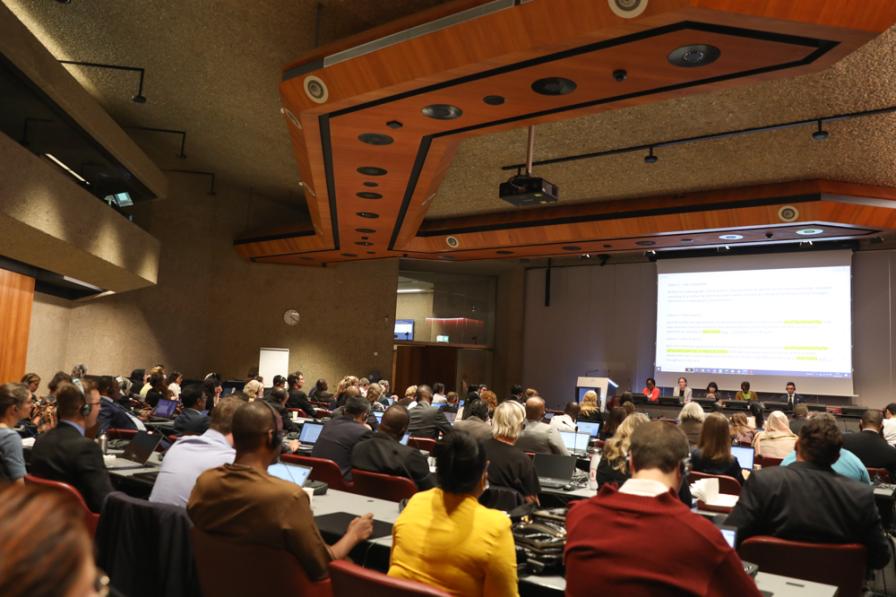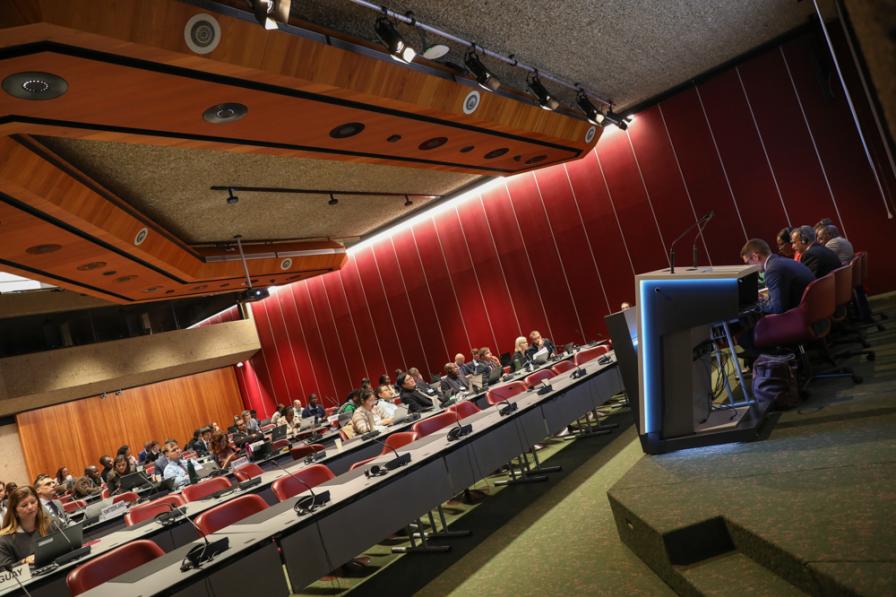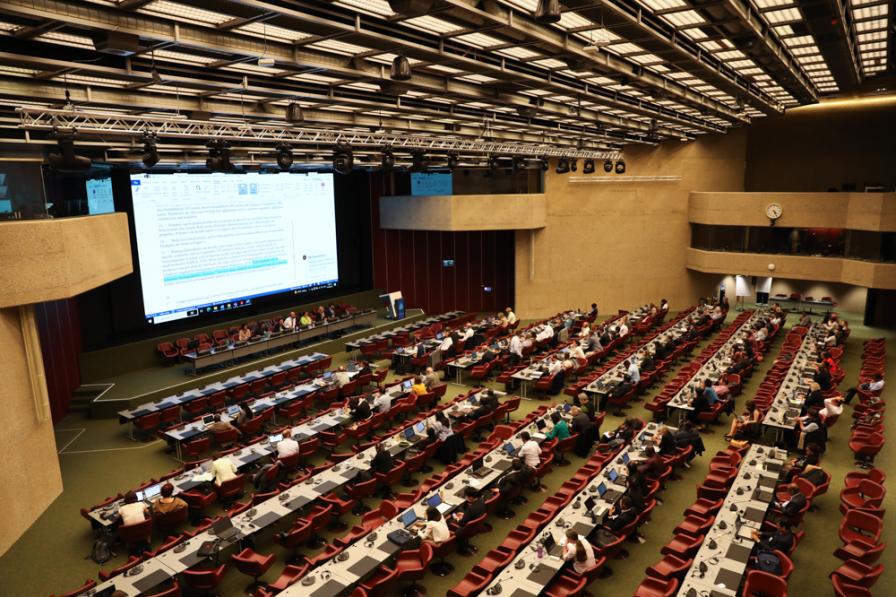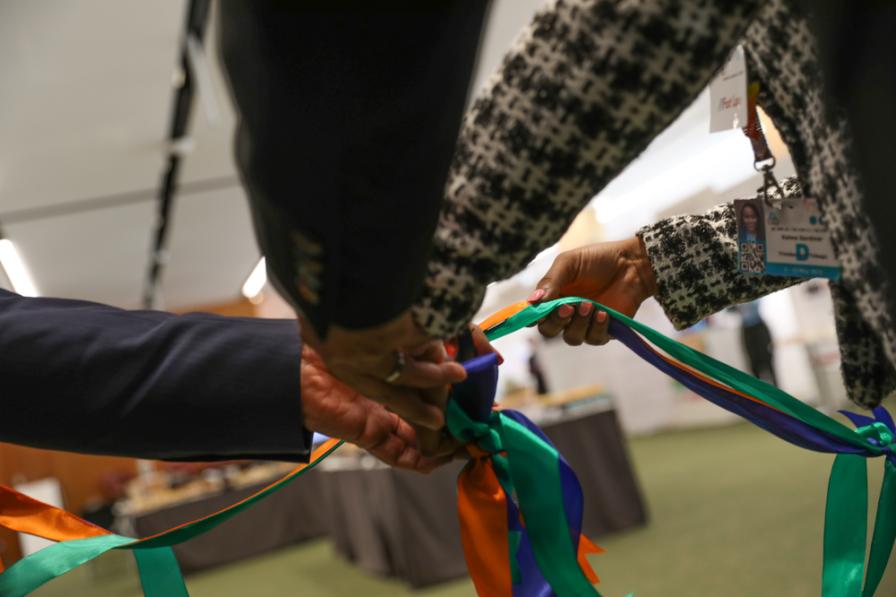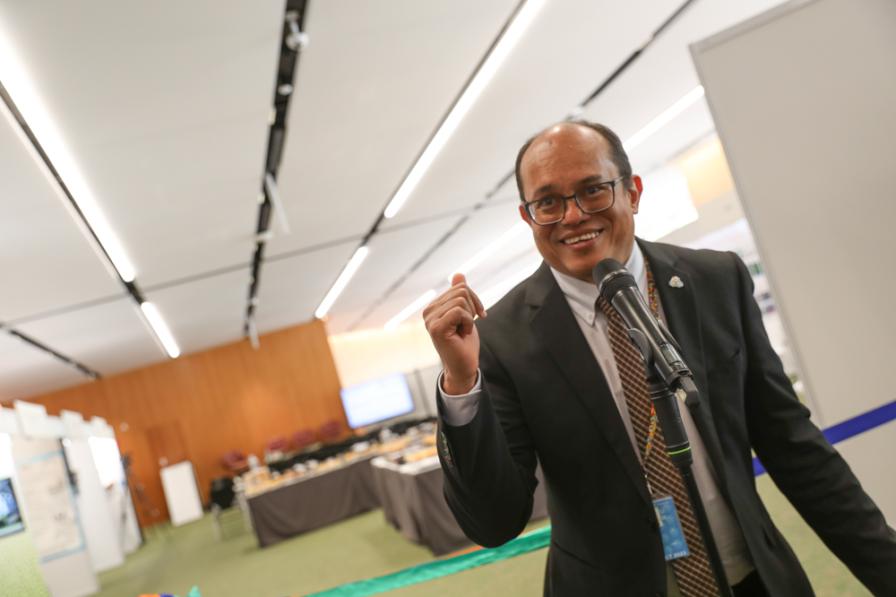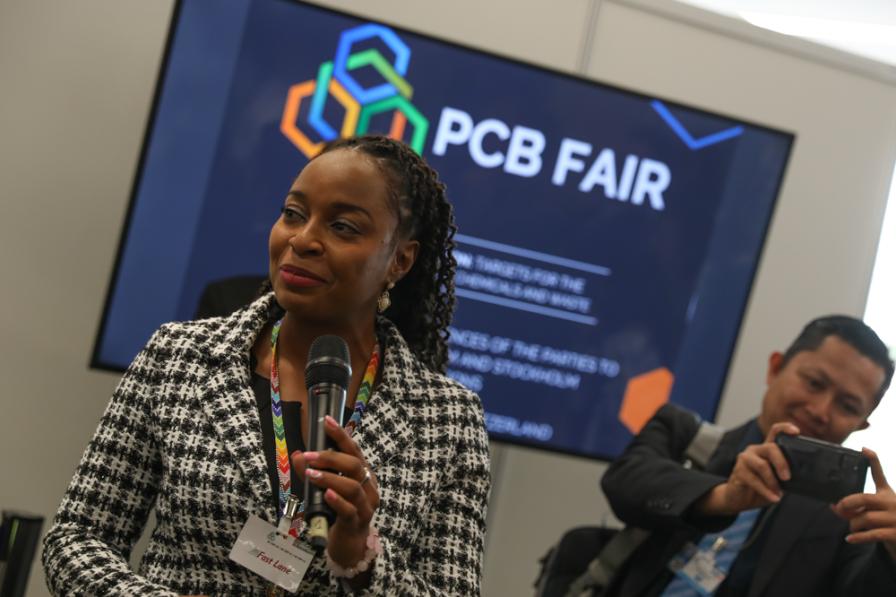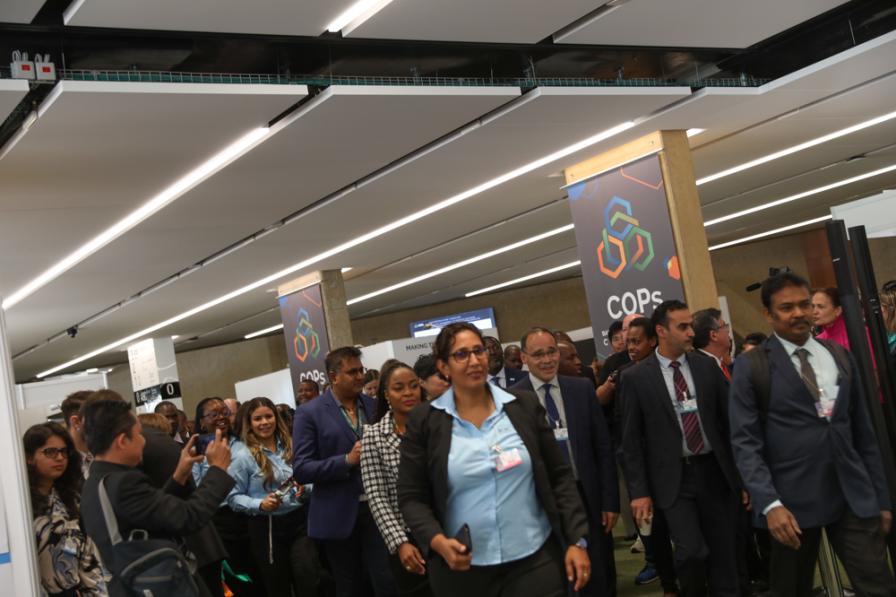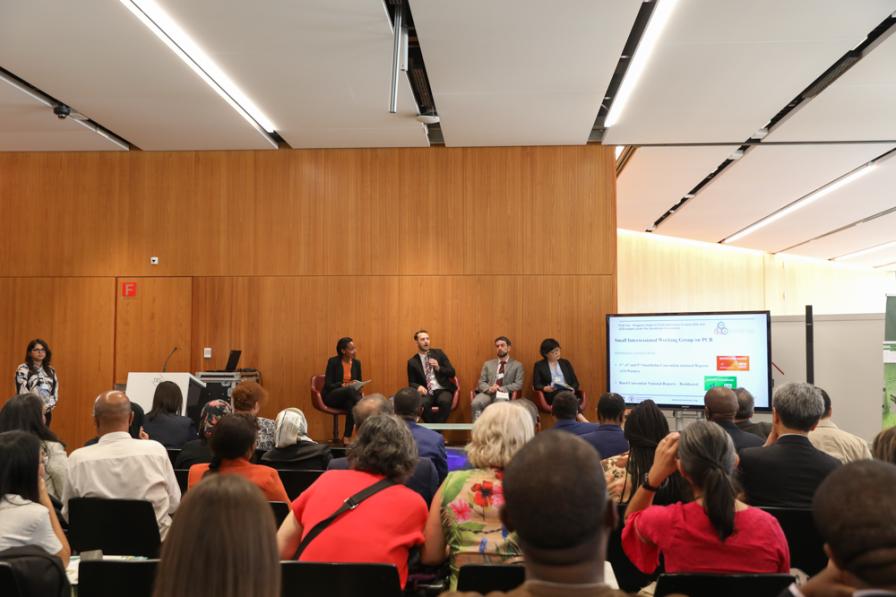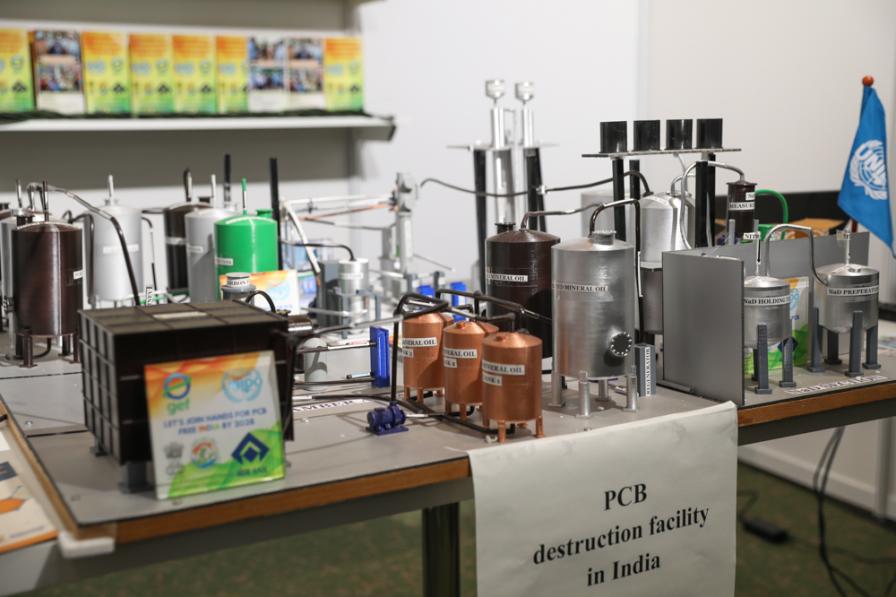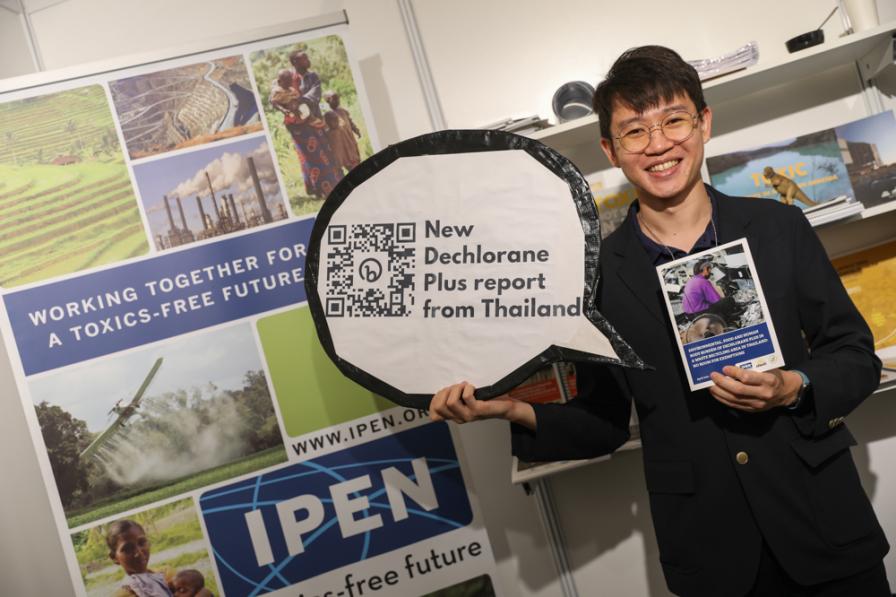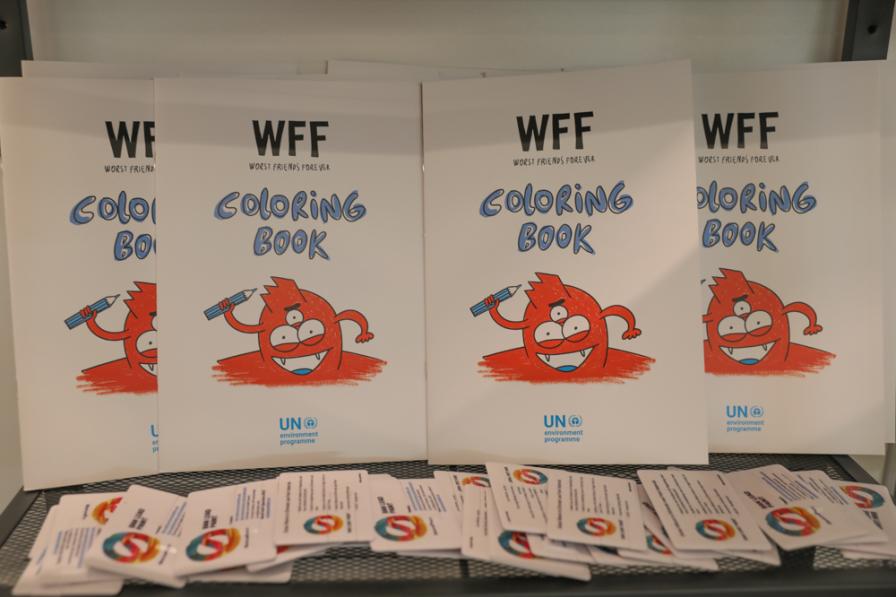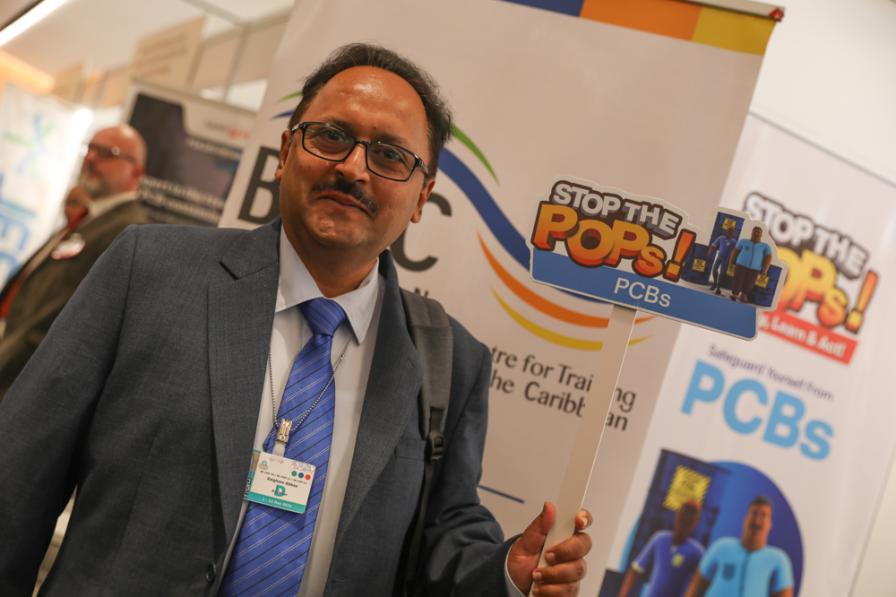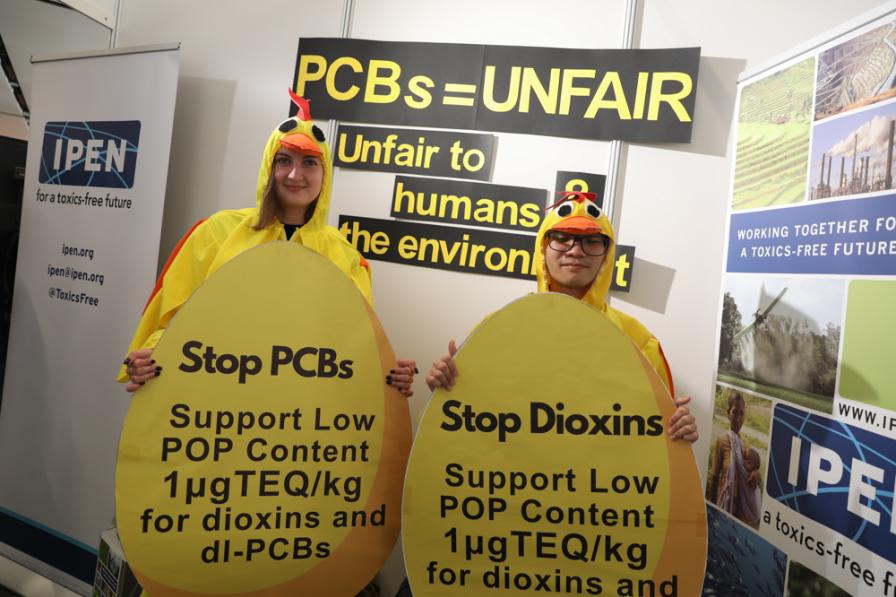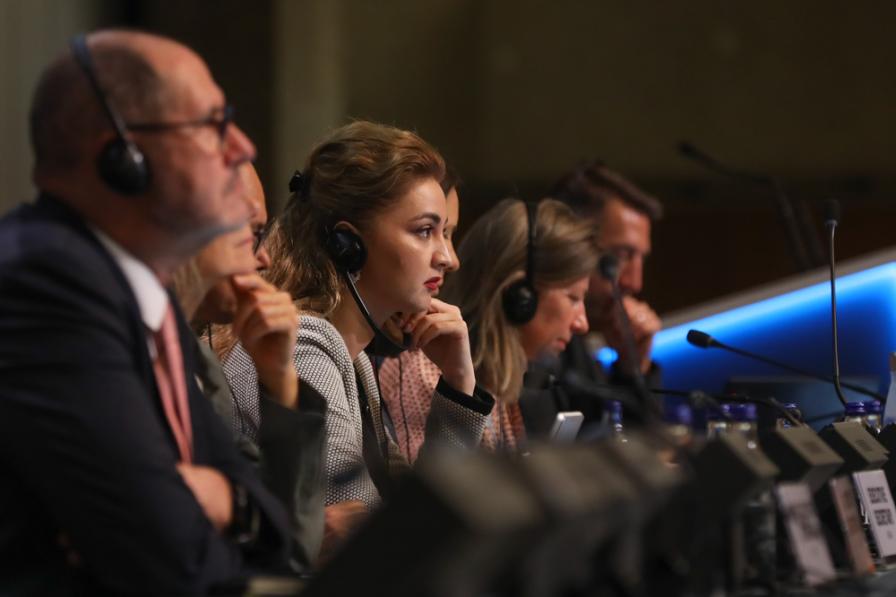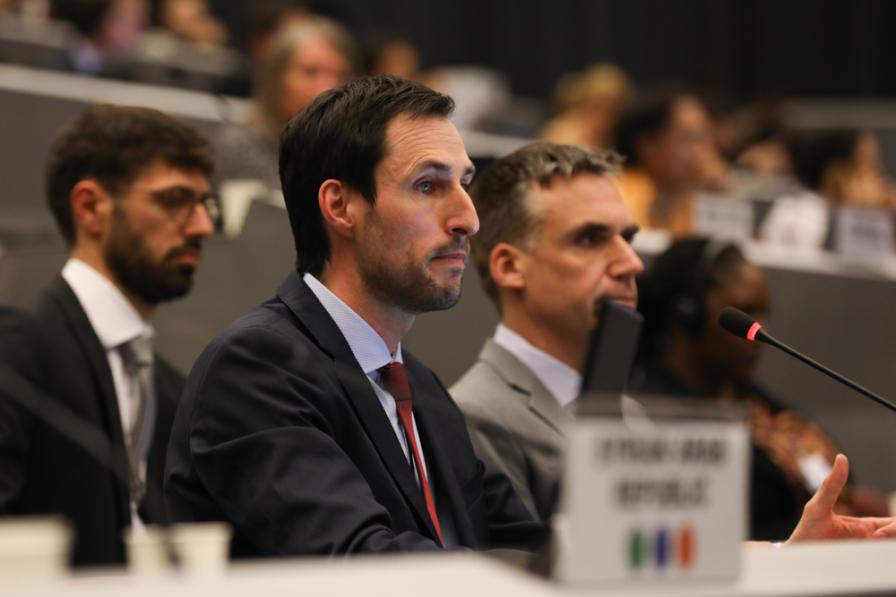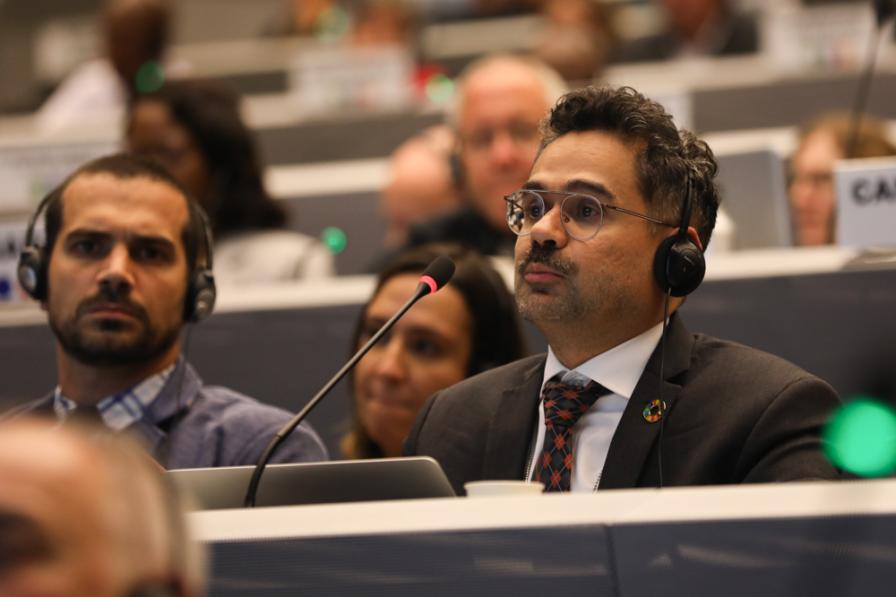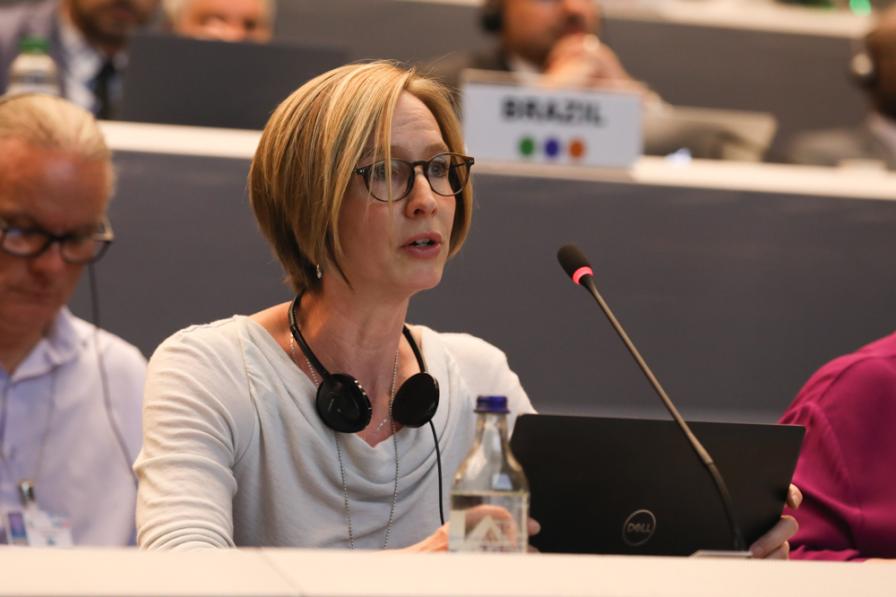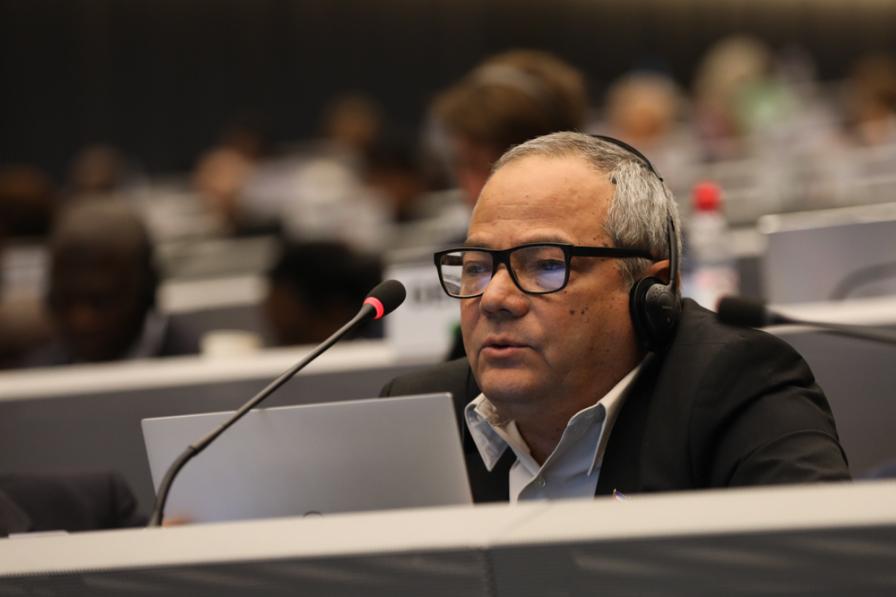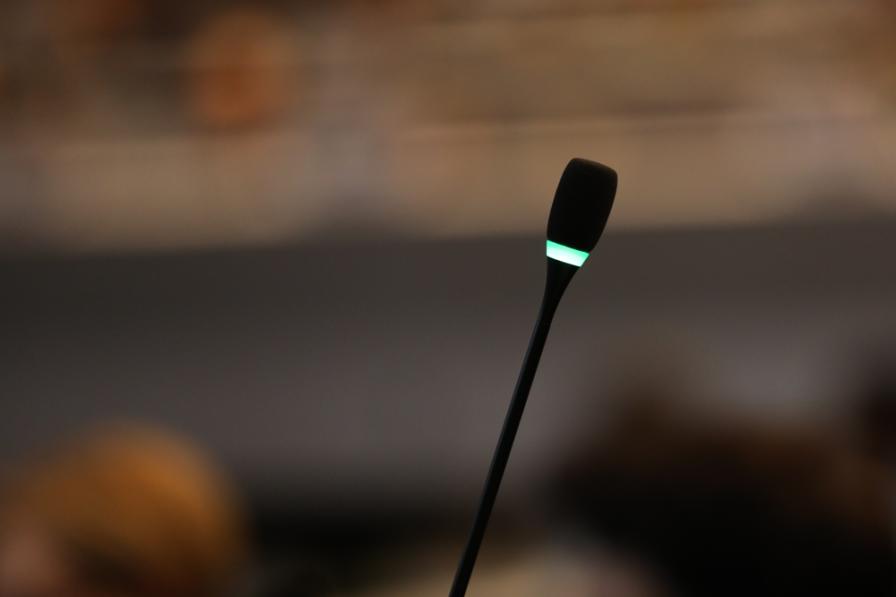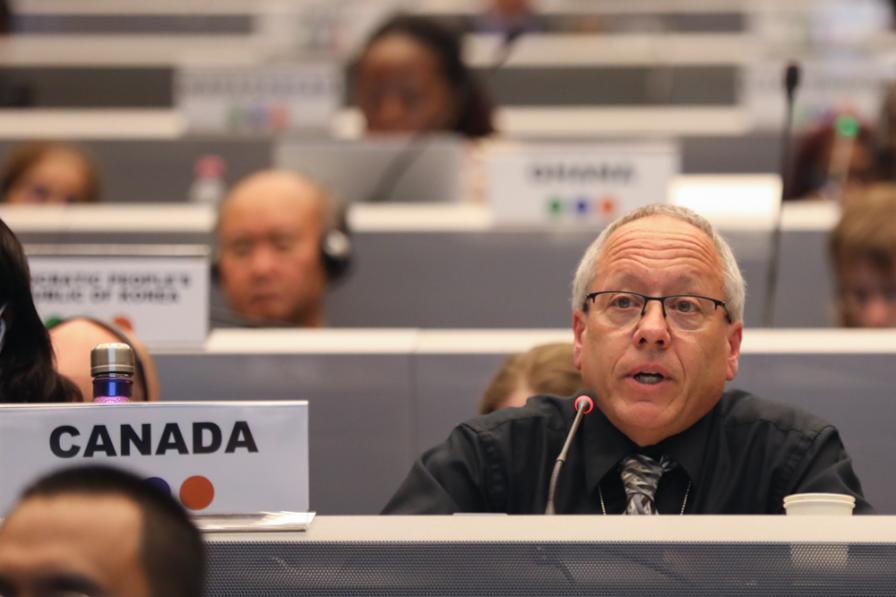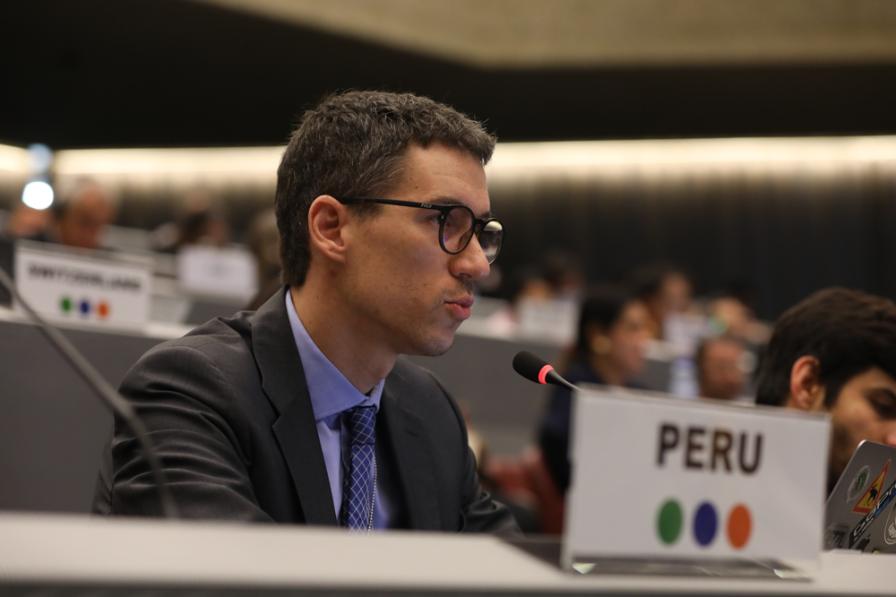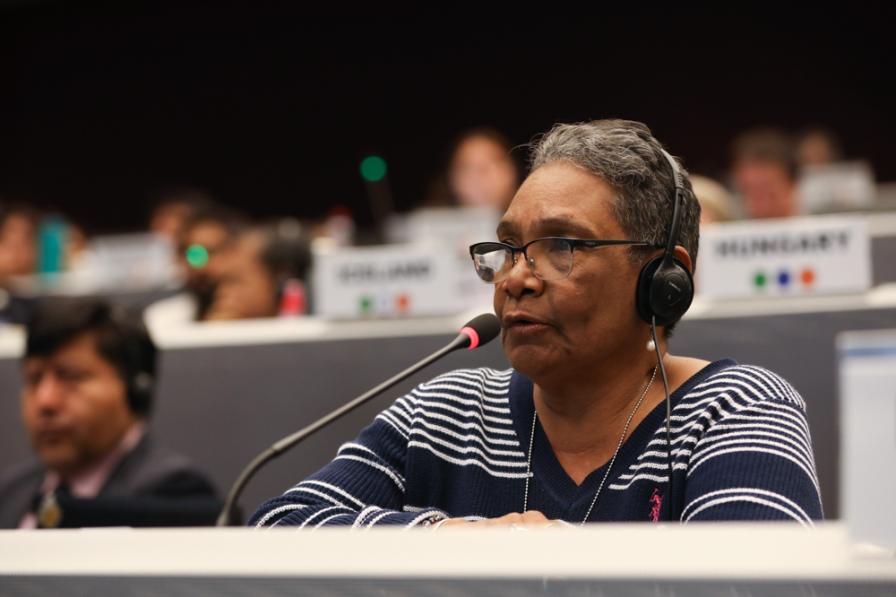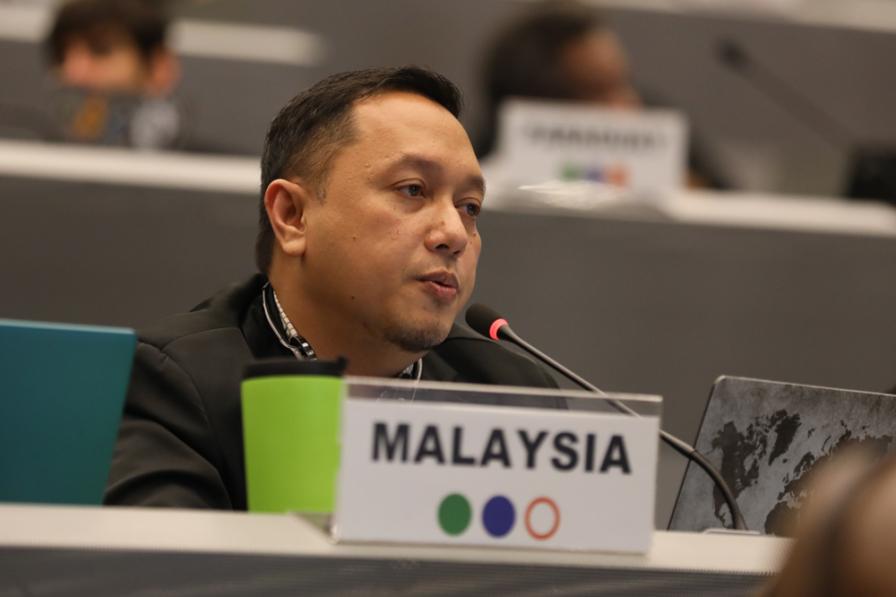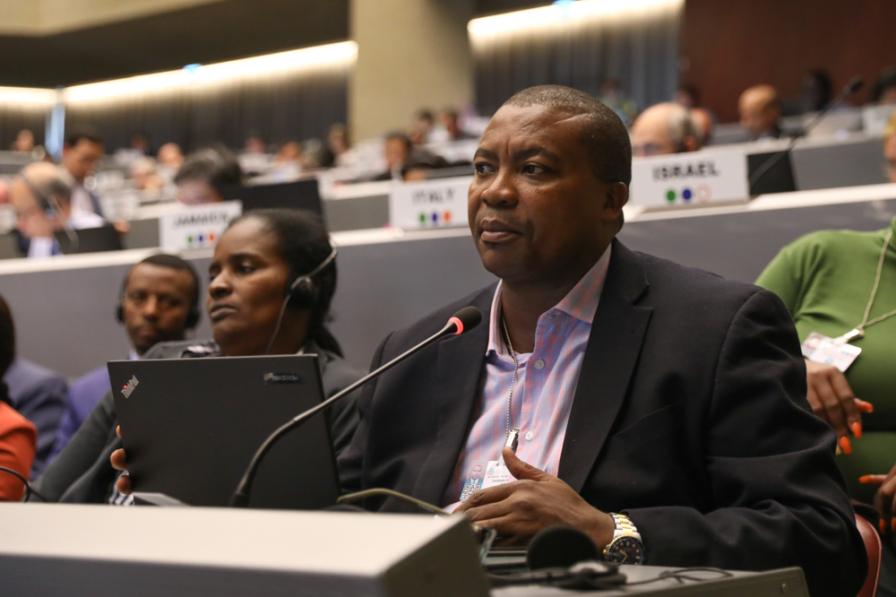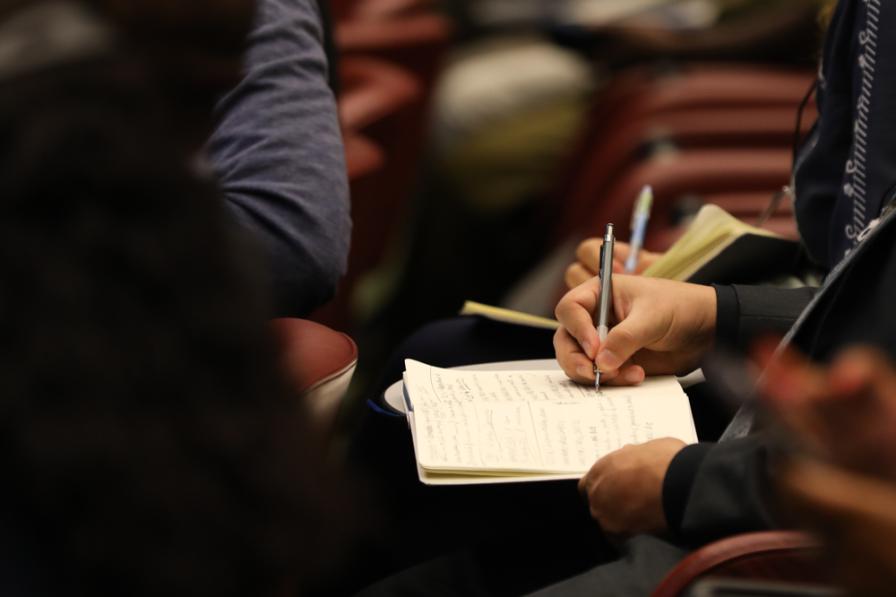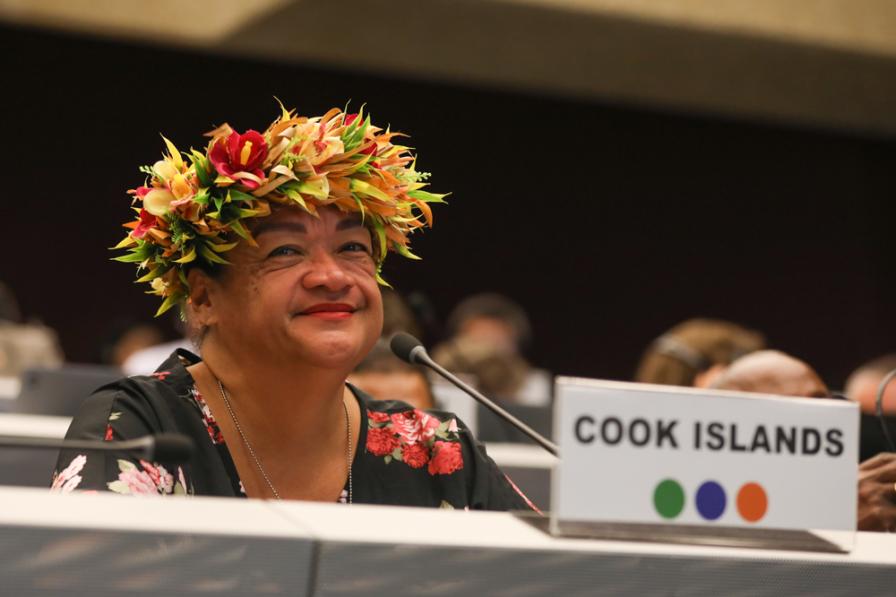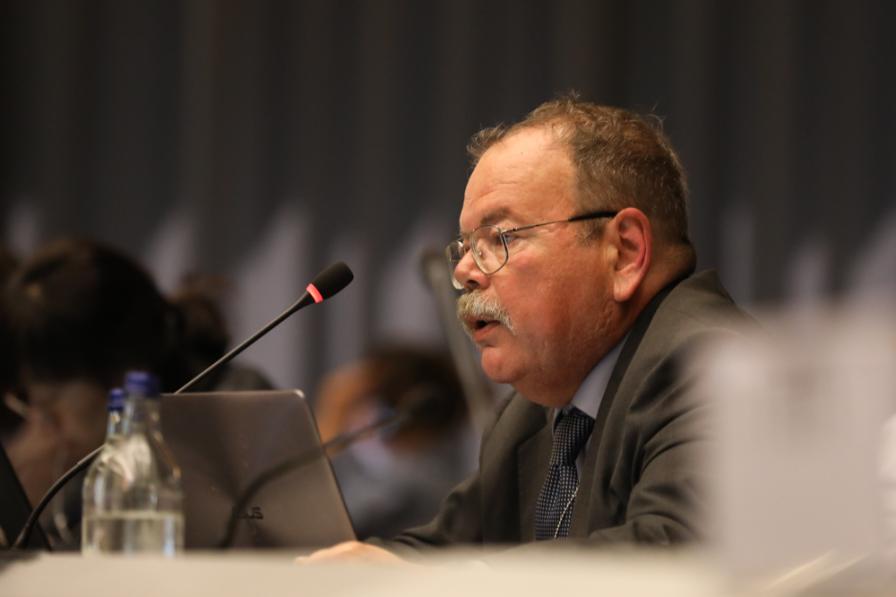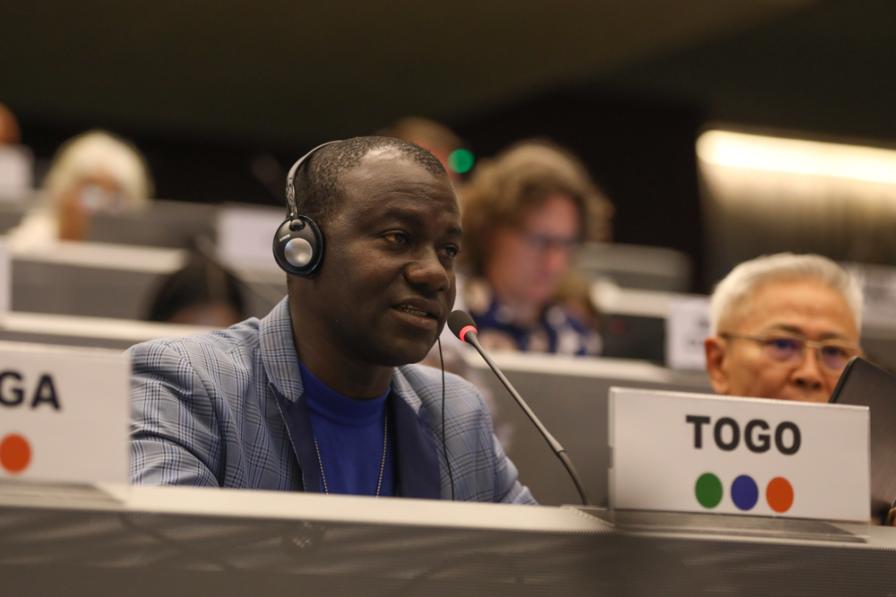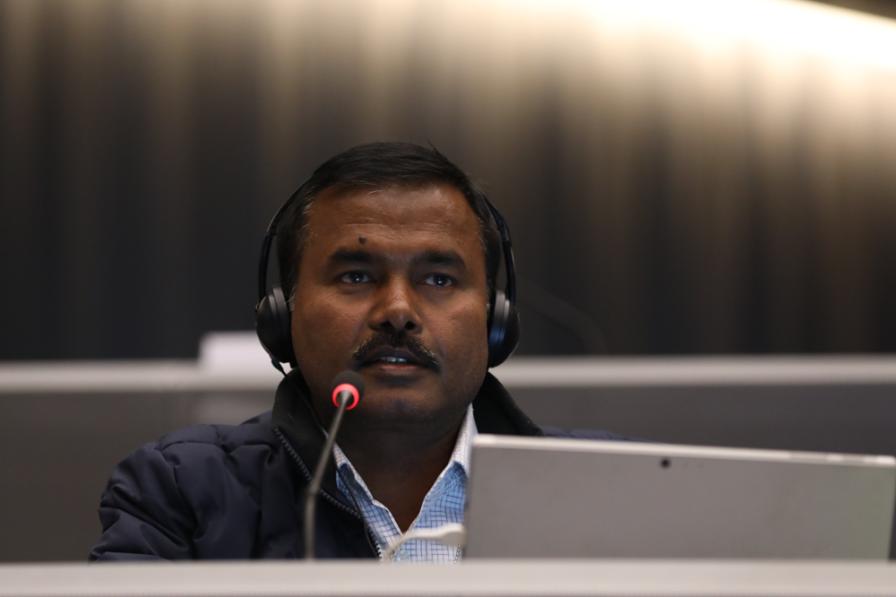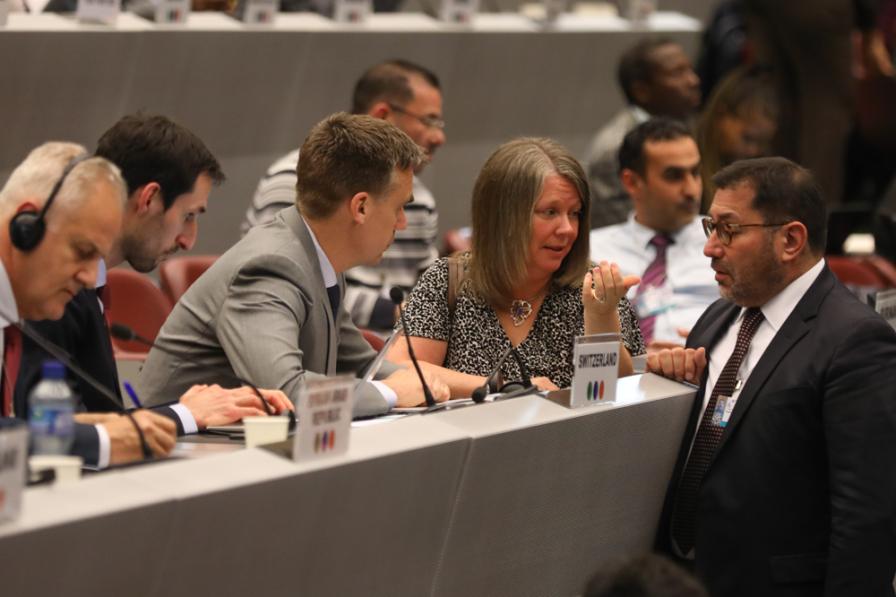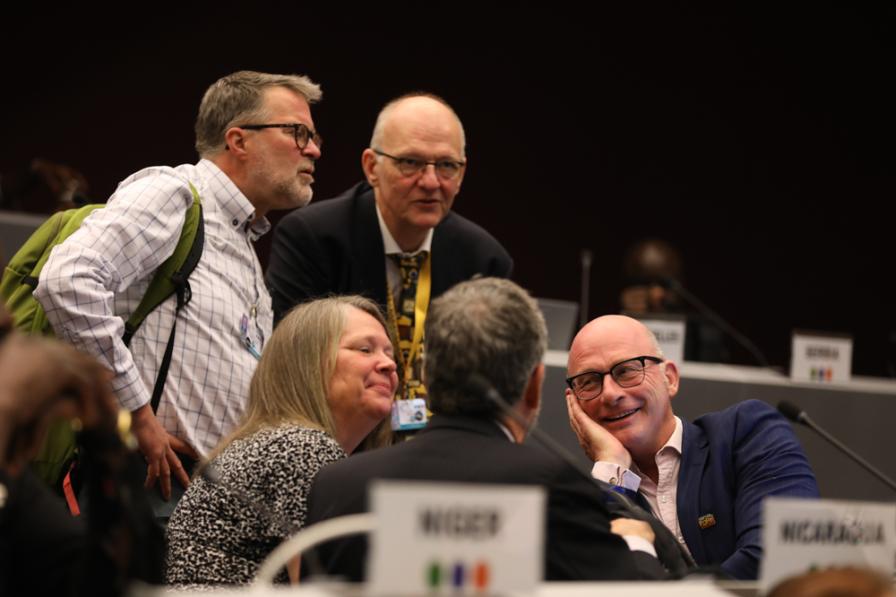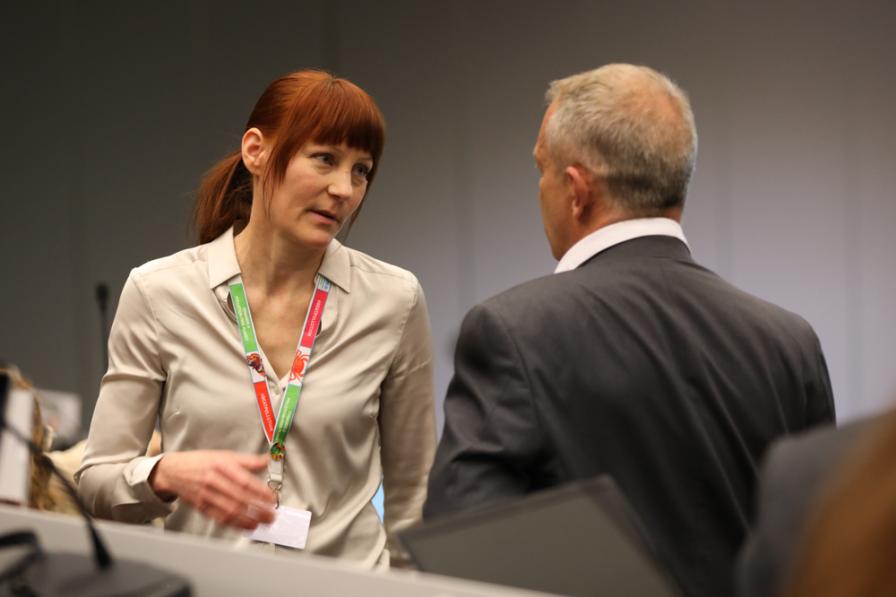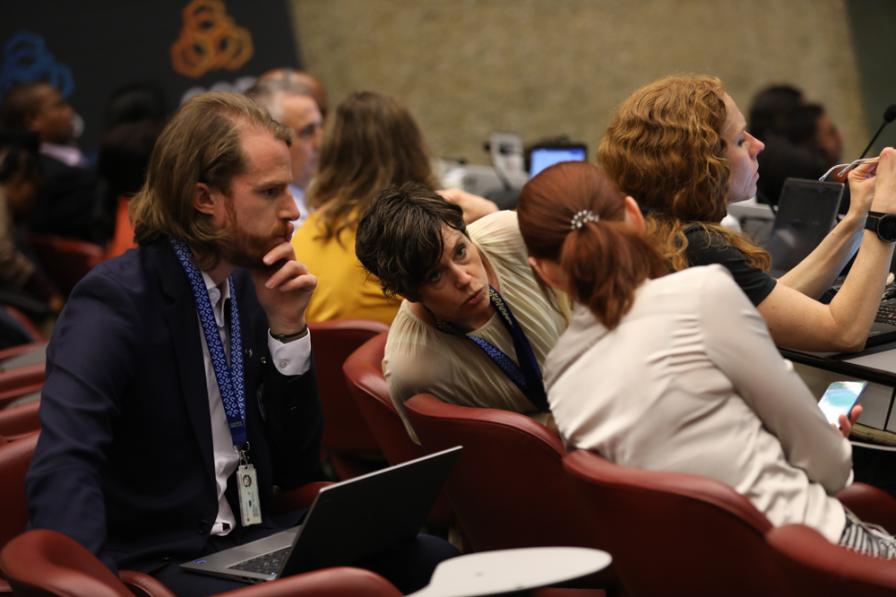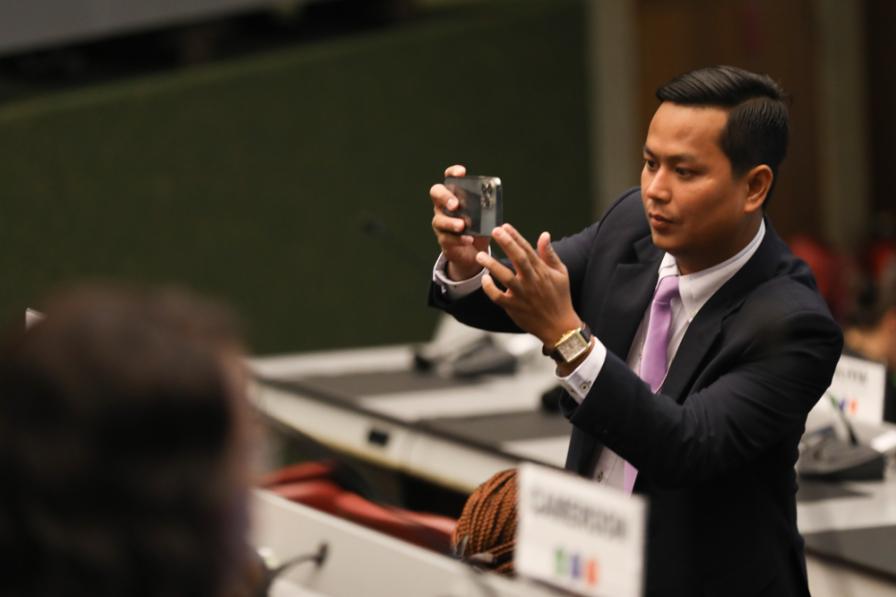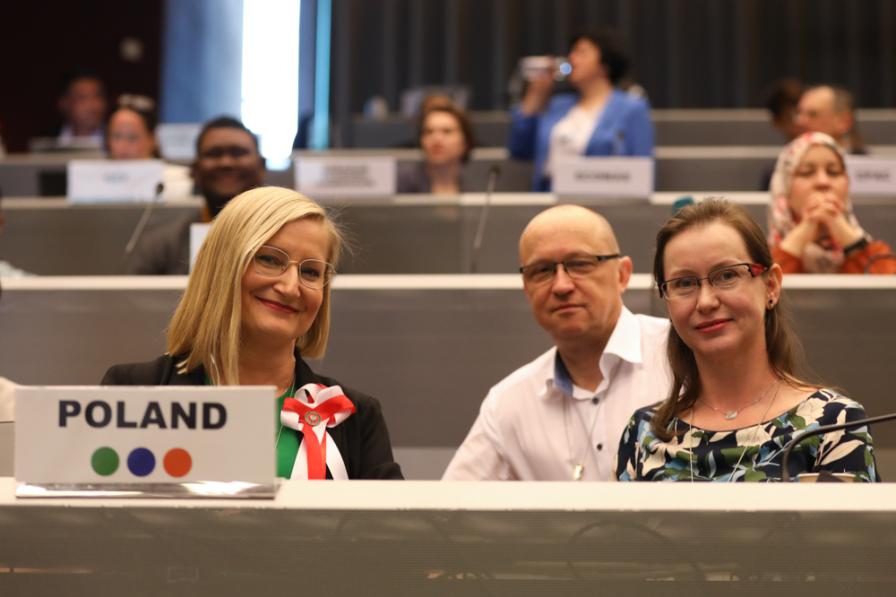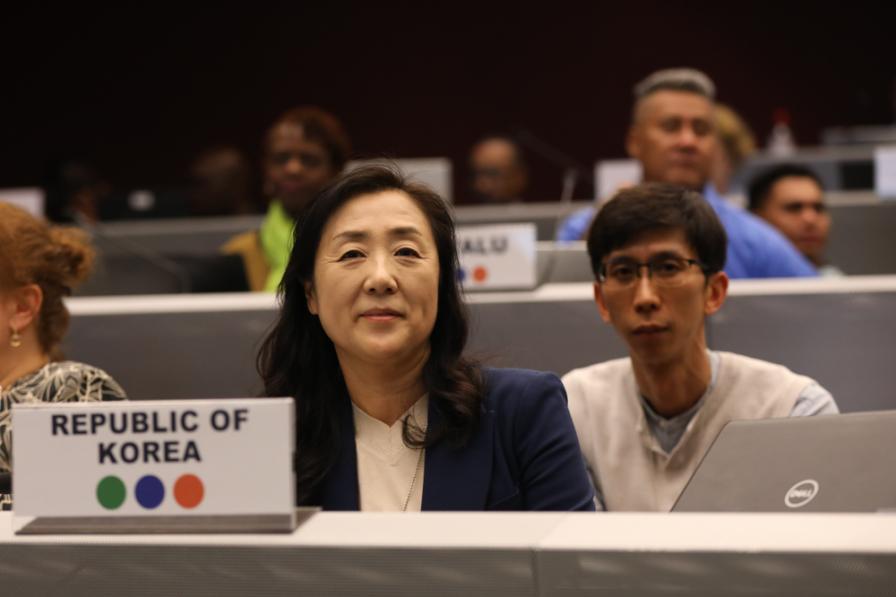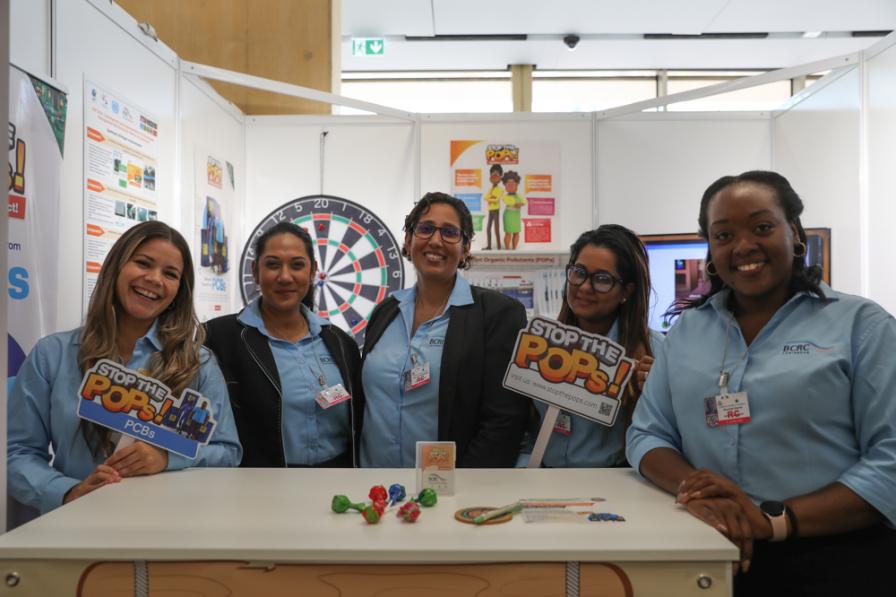There was something for everyone at the TripleCOP. All the Conventions were at work at the Basel, Rotterdam, and Stockholm (BRS) COPs, addressing production, use, disposal, and trade of hazardous chemicals and waste. For each, there were questions about how to ensure these treaties rise to modern challenges.
Want to dig deeper? Read the full Earth Negotiations Bulletin daily report.
Under the Basel Convention, the oldest of the three Conventions, there are various efforts to help it better reflect contemporary waste streams and management. Debates on Annex IV (disposal operations) are part of this effort. Countries debated how to handle waste that is exported for repair or refurbishment. For some, including this category could close a loophole that allows unscrupulous dealers to bypass the Convention by claiming waste as reusable or repairable. Looming in the background is e-waste. If a computer is repairable when it is exported, but becomes waste soon after, it will be up to the importing country to dispose of it.
Stockholm Convention parties continued to hear calls for enhancing support, especially in light of a review of the needs of developing countries. This is especially important, as two deadlines are rapidly approaching: to eliminate the use of polychlorinated biphenyl (PCB) in equipment by 2025, and to ensure environmentally sound management of PCBs in equipment and in liquids by 2028. It is estimated that the average PCB disposal costs are USD 3316/ton, which means there is a projected funding gap for PCB disposal of around USD 1.7 billion. Still, as countries noted, the scale of the challenge is not entirely clear: the difficulties in identifying PCB-containing equipment and reporting on it may mean these are underestimates.
Two proposals emerged to enhance the effectiveness of the Rotterdam Convention, which has been stymied by its repeated inability to list new chemicals, thus making them subject to the prior informed consent (PIC) procedure.
One proposal aims to create a new Annex, a new home for chemicals recommended by the Chemical Review Committee for inclusion in the Convention, but to which parties cannot agree. This new Annex would mean that information is shared among, and the PIC procedure applies for, the countries that sign up to the new Annex. For the many supporting countries, it’s a solution to the impasse, by allowing a majority of countries to move ahead with listing chemicals and sharing information to inform trade decisions.
The other proposal is for an intersessional working group to address the “undesirable indirect economic and trade effects arising from the inclusion of new substances” in the Convention. Those in support of an intersessional working group cited the usefulness of this approach for developing countries to better understand the trade and economic implications of new substances in Annex III.
Side Events and the PCB Fair
The PCB Fair opened with a flurry of colorful games and hazmat suits in a bid to raise awareness about the risks posed by PCBs. It’s an effort at innovative communication. A colouring book aims to teach children about Pesty, Sticky, and Sparky: the three Worst Forever Friends a kid could have. Other communications seek to make the invisible problems raised by PCBs more obvious for all.
Side events have garnered so much attention that the Secretariat announced an online option for some events, due to the overflowing rooms. Wednesday’s headline event was on the synergies between the Basel Convention and the plastics treaty under negotiation.
Many also attended the event on the Global Monitoring Plan to measure the effectiveness of the Stockholm Convention, especially given the good news of the reduction of POPs in people and the planet. Countries also shared their experiences in phasing out DDT with the support of the Global Environment Facility (GEF), and on PCB management in the Caribbean.
All ENB photos are free to use with attribution. For the 2023 BRS COPs, please use: Photo by IISD/ENB | Kiara Worth.
To receive free coverage of global environmental events delivered to your inbox, subscribe to the ENB Update newsletter.
